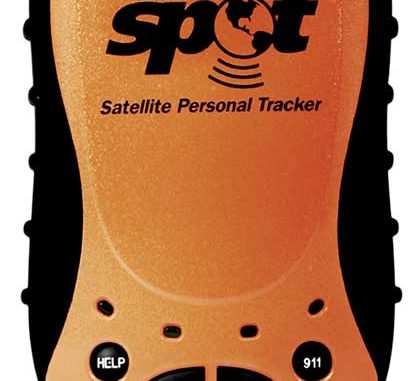
Here’s a look at some more trophies that were dropped during the 2007-08 season.
Emergency position indicating radio beacons (EPIRBs) have long been required equipment on commercial vessels and a smart addition for all larger boats. The introduction of the personal locator beacon (PLB), a smaller and manually operated version of the EPIRB, has spread the use of maritime distress beacons to smaller boats and to inland users on both land and water. You might be surprised to learn that many hikers, hunters, climbers and other outdoor enthusiasts now carry PLBs.
Activate either of these devices, and you trigger a full-scale rescue response. If that’s not quite what you need, the SPOT Satellite Messenger is a new kind of distress beacon that can do the same thing, or less when an all-out rescue attempt isn’t needed.
Activate the unit’s Alert 911 feature when you are in dire need, and you get a full emergency response. Then, if unexpected help comes along, the official rescue can be cancelled with the press of a button.
If you are just behind schedule and will be getting back into normal cell phone or radio range much later than you expected, you can use the SPOT unit’s Check-In feature. This sends a message to pre-designated people telling them that you are okay and giving them your coordinates. This can keep worried family members from unnecessarily reporting you overdue to emergency service authorities, and it gives both you and them some extra peace of mind.
Having mechanical trouble or running out of gas in a boat or ATV while out of radio or cell phone range are not life-threatening emergencies but still require help. SPOT’s Ask For Help feature lets you request help from friends or family members (instead of emergency search-and-rescue crews) at your exact GPS position. If you let your designated contacts know in advance where you are going and what you’ll be doing, they will have a pretty good idea of the kind of help you most likely need.
An annual subscription fee of about $100 gives you unlimited access to these three SPOT features, and two more are optional at extra cost. Let’s say you are planning to cruise across the Gulf of Mexico, take a canoe trip down a river system or hike across a mountain range: SPOT’s Track Progress feature allows persons of your choice to track your progress using Google maps. This option costs about $50 per year.
If you plan to take annual international adventures and want some insurance to cover possible search-and-rescue expenses you might be interested in the other option: $100,000 worth of coverage for as little as $7.95 per year.
SPOT’s Satellite Messenger doesn’t use the same communications network that supports EPIRBs and PLBs, but the path your emergency message travels is similar. Activate the unit and it acquires its coordinates from the GPS system and sends them along with your selected type of message to Globalstar’s 40-satellite network (the same constellation that supports Globalstar’s satellite telephone system).
The message is instantly directed to the system’s international emergency response center. The center then contacts the appropriate responders according to the type of message, your location and your personal information. This could be the U.S. Coast Guard, state highway patrol, county sheriff or your brother-in-law (if he’s a designated contact). The message is repeated every five minutes until cancelled.
You can find the SPOT Satellite Messenger in outdoor stores and catalogs for about $150, plus subscription. For more information, you can call California-based SPOT at 866-651-7768 or visit www.findmespot.com.
A great source for information on EPIRBs, PLBs and other survival gear is the ACR Electronics web site: www.acrelectronics.com.


